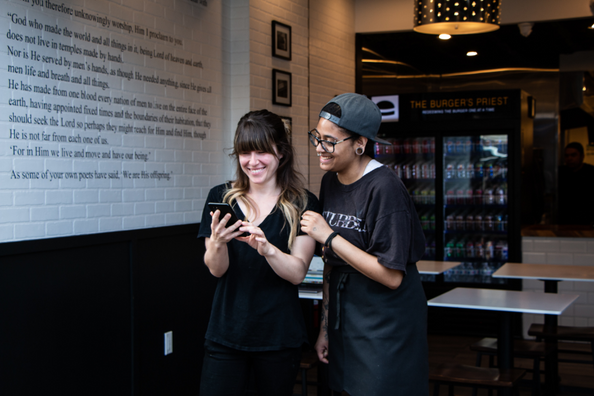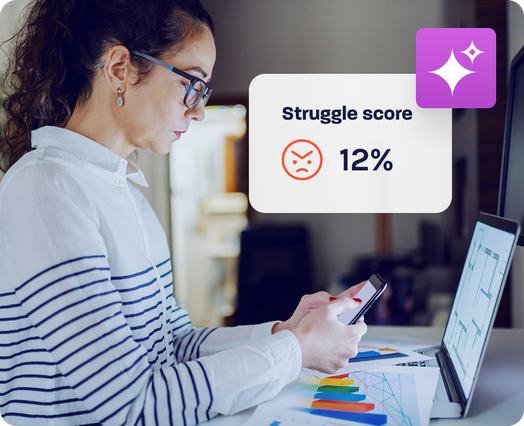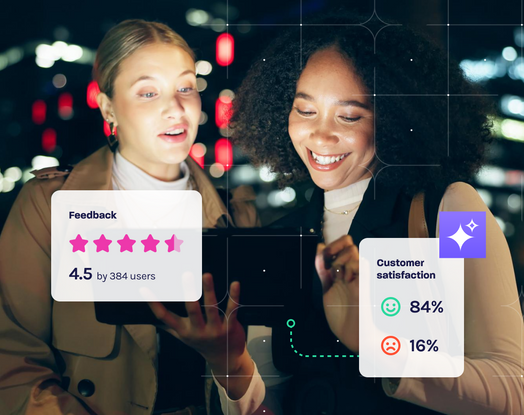
3 questions to ask for a better mobile app experience
As our lives have gone digital, consumer behavior has changed. Mobile device usage has been growing progressively over the past five years, making the mobile app experience mission-critical for organizations across sectors. In fact, 79% of smartphone users have made a purchase using their mobile device in the last six months.
In most industries, from online shopping and food delivery to financial services, mobile apps have seen an exponential increase in both new and daily active users since February 2020. However, conversion rates on native mobile apps remain, generally speaking, significantly lower than on the web.
Gartner estimates that fewer than 0.01% of apps were considered a financial success in 2018. So to capitalize on the investment they’re making, many companies stuff as many features as possible into their mobile apps. As a result, many apps have become everything and the kitchen sink, leading customers to delete poor performing apps from their phones. With smartphone real estate at a premium, it’s imperative that brands keep their place on their customers’ devices and in their daily lives.
Here are three questions to ask yourself about your mobile app to create frictionless mobile app experiences.
→ Download Now: Forrester on Mobile App Improvements
What tasks do your customers want to complete with your app?
Consumers want and expect to access digital self-service tools for inquiries and support. These days, customers can manage over 85% of their relationship with a company without ever having a human interaction. However, this doesn’t mean you need to include every self-service feature in your mobile app.
Your customers don’t care about your business goals and KPIs. They want to accomplish whatever it is they need to do quickly and efficiently—fitting it into their busy lives on the go.
Use mobile app analytics to identify the journeys that your customers take in your app and find the tasks they most want to complete. Whether they’re checking their bank balance or reordering an item they frequently purchase, you should match your mobile app UX to your users’ goals and behaviors.
Do you need to build another mobile app?
Mobile app teams rely on software development kits (SDKs) to add features, boost functionality and reduce development time. The average app has over 17 SDKs. Each new SDK adds to the size of the app which impacts app performance and CPU usage on the user device as well as leads to more crashes.
We conducted research with over 1,000 US consumers, and found that almost half (49%) of respondents believe that app crashes have a negative effect on their relationship with a brand. Plus, 24% say they’re likely to move to a competitor, and 25% think less of the brand following a crash.
So rather than try to force a new digital product into an existing mobile app—increasing its size and risking more crashes—you should be asking whether it makes sense for it to have it’s own app. For example, a bank may build a distinct app for a high value, VIP customer segment who need access to exclusive perks or who demand more personalized experiences.
Unlock tips, resources and ideas to stay ahead of the mobile app game
Does your overall customer experience support your mobile experience—and vice versa?
Mobile is truly essential to the omnichannel customer experience. With many stores and branches closed due to the pandemic, banks and retailers have spent 2020 moving customers to mobile apps. And now their focus is on making their mobile app journeys frictionless and keeping customers coming back. Customers want to move seamlessly from your app to your website to your store (once it reopens) without feeling a break in the experience.
Digital experience analytics solutions that capture both web and mobile app journeys help you understand how your customers switch between these channels. By connecting this to customer profiles and marketing systems, you can better segment your customer base and create more personalized experiences. Plus, making mobile app session recordings available to call center agents via your CRM helps strengthen the relationship between your customers and your brand.
Poor mobile app usability can result in slow or buggy features that affect the overall performance of the app, inaccessible features, and painfully long load times. When one or more of these issues come together, your mobile app will fail. Taking time to ask yourself what your customers need to accomplish in your app and how it contributes to your overall CX will help you eliminate unnecessary and unused features for a smoother mobile app experience.
Get more tips on cleaning up your mobile app experience with this research from Forrester.








